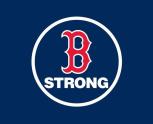 Today, my community is trying to regain some sense of normalcy. On this sunny, mild Sunday, I did some yard work, watched a little bit of baseball, and we bought groceries.
Today, my community is trying to regain some sense of normalcy. On this sunny, mild Sunday, I did some yard work, watched a little bit of baseball, and we bought groceries.
Much has been made of “Boston Strong,” and I do believe in it. We do not, as a whole, wallow in self pity. We are scrappy, and yes, sometimes we are arrogant and self-important. We are large enough to know that we occupy an important place in the world, yet small enough to feel connected to each other. That gives us strength.
Even when you’re many miles away, as I was last week.
On Sunday, the day before the Marathon, my family and I embarked on a week-long road trip up and down the East Coast, visiting potential colleges with my daughter.
My first notification of the disaster was a robo-call from the state’s public health agency shortly after 3:00 on Monday. (I’m on the call list because of my job at the Massachusetts Medical Society.) Within an hour, our family determined that all the people whom we knew would be at the scene were safe.
Even after that, it was hard to concentrate. When we walked through the lobbies of one college building after another, the TVs showed CNN, without the sound. Still, we watched. Luckily, most college tour guides say the same thing; otherwise we would have been in trouble!
Back home, Steve Adelman, the new director of our physician health services subsidiary, wrote several items for our blog. With very light editing, I published all of them from the road. Each time, he said precisely the right thing, at the right time.
The week dragged on. I followed everything from my iPad. On Tuesday, I went for a long run in Williamsburg, Va., as both a prayer and a salute to the brave and the fallen. On Wednesday, I spoke with a senior manager from the AMA about potential ways to acknowledge and thank those who responded.
Thursday night, I wrote a draft of our Friday e-newsletter, focusing on the heroism of medical and emergency personnel, and the availability of mental health services going forward. I went to sleep knowing about shots fired near MIT, not suspecting it had any significance.
On Friday, I knew. At 6:15 a.m., I was awakened by a robo-call from work, announcing that our offices in Waltham and Boston were closed for “security reasons.” I immediately called my boss, wanting to know what I could do. She spoke of car chases, gunfire and hand grenades thrown into the street.
Life became surreal, a feeling that was amplified by the distance. But technology helped.
We activated our crisis communications plan. I tweeted about our building closure, and repeated it on our website, blog, and Facebook. Steve Adelman wrote another blog post. I was glued to the TV in our friends’ kitchen outside Philly. I posted notices about cancelled state hearings, and relayed anything else relevant to medicine and health care.
I yearned to be home, where my friends were, where my community was suffering. But thanks to technology, I was nearly as effective 350 miles from my office as I could have been 12 miles away, at my home. It was one way I could help.
Riding in the car on I-95 that day, I posted updates and tweets. My colleagues and I planned what we would do with our newsletter, which we publish Friday afternoons. We decided to wait and see what would happen, especially sensitive to the raw emotions everywhere.
That night, from a friend’s living room in Westfield, N.J., my family watched the inspiring climax of the ordeal. Together with my colleagues back home, we rewrote and published the newsletter around 9:45 p.m., and fed the material to our social media channels. My family drove home Saturday to a changed community.
I have no personal stories about near misses. But like any area resident, I have many “could have beens.”
One week before, we had dinner just a block from the first explosion. We visit that area all the time, where there is always something fun to do.
Two days before the race, my daughter and her friend visited their track coach, who was working at the runners’ festival at the Hynes Convention Center. She and her friend visited the finish line, fantasizing that perhaps one day, they will experience the glory of Marathon Monday.
If we hadn’t been visiting colleges, my daughter and I would have almost certainly been on Boylston Street Monday afternoon, outside Marathon Sports, where the first bomb exploded. Like most runners, we like to hang out at running stores, window shopping and browsing. More important, my daughter’s coach works there, and like all good coaches, he is a mentor and inspiration to her. He wasn’t hurt, but he is shaken.
Normalcy? Maybe that’s not the right concept. I think Juliette Kayyem, writing in the Globe last week, had a better idea. She said the week was about building resiliency. She wrote, “True resiliency is a function of competence, not psychology, and the ability to learn from the past.”
Maybe that’s the essence of “Boston Strong.”

